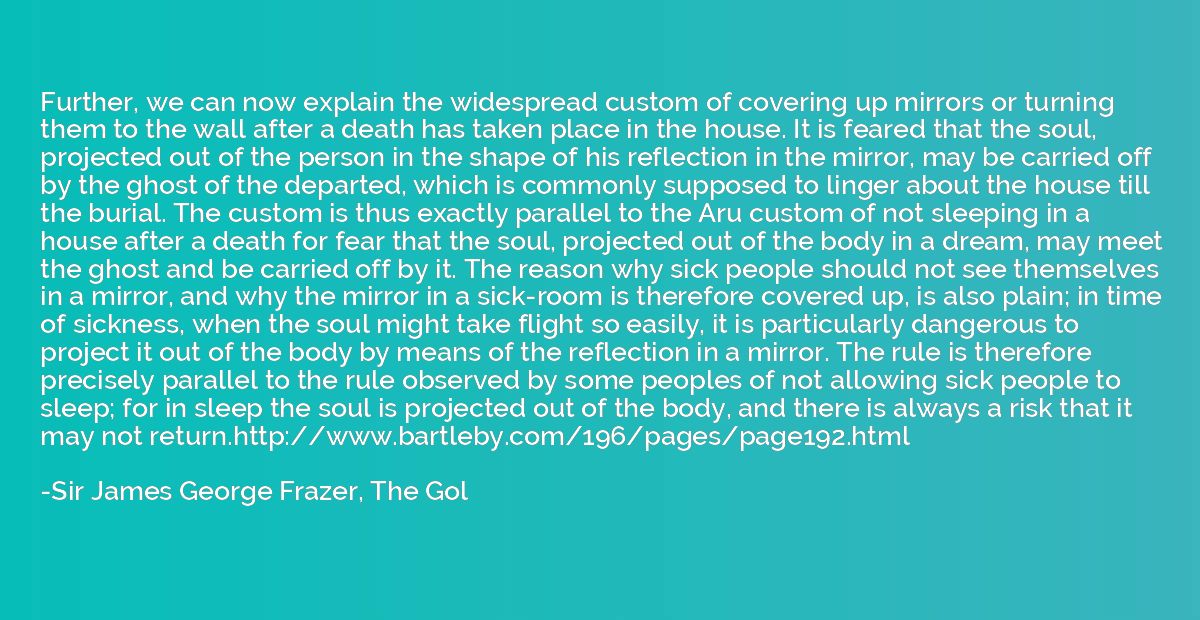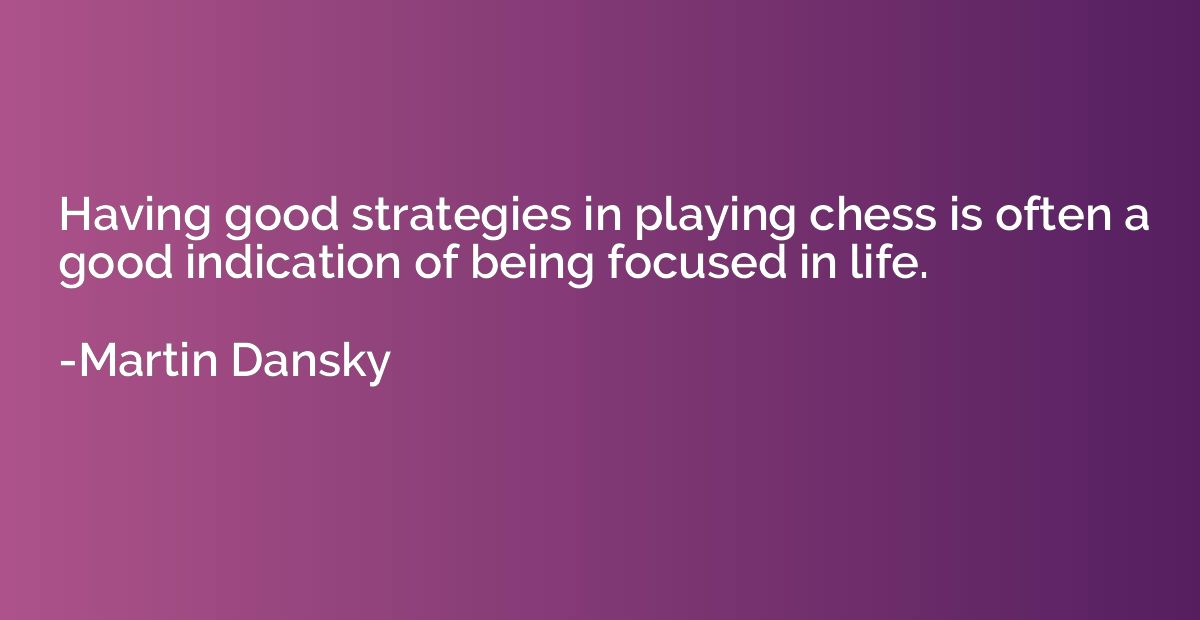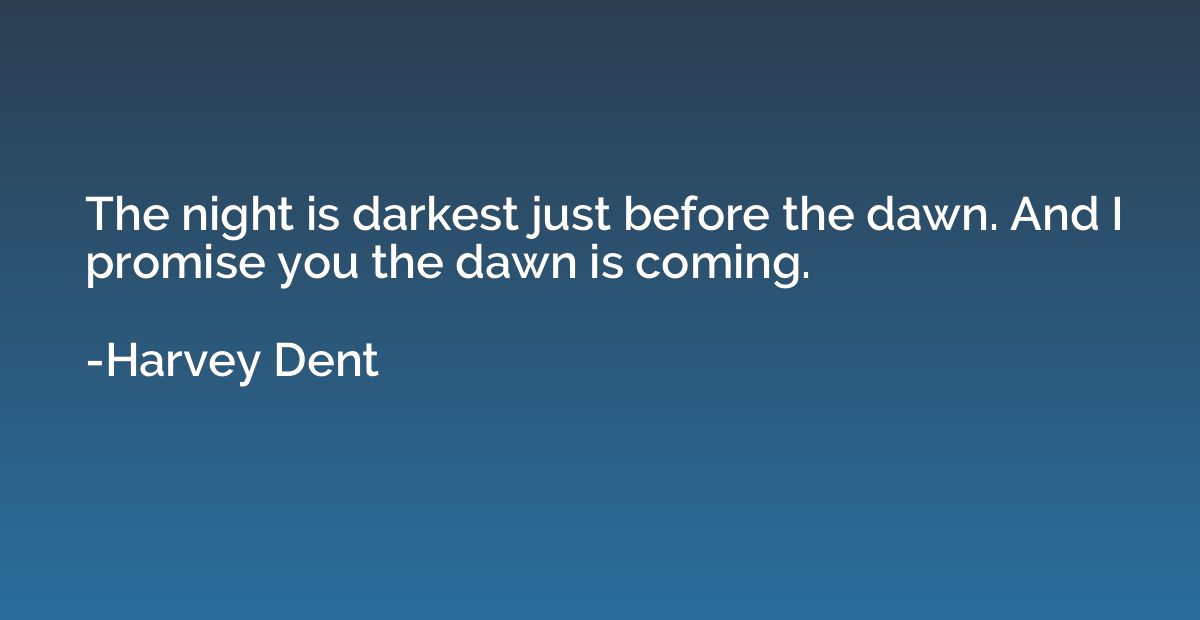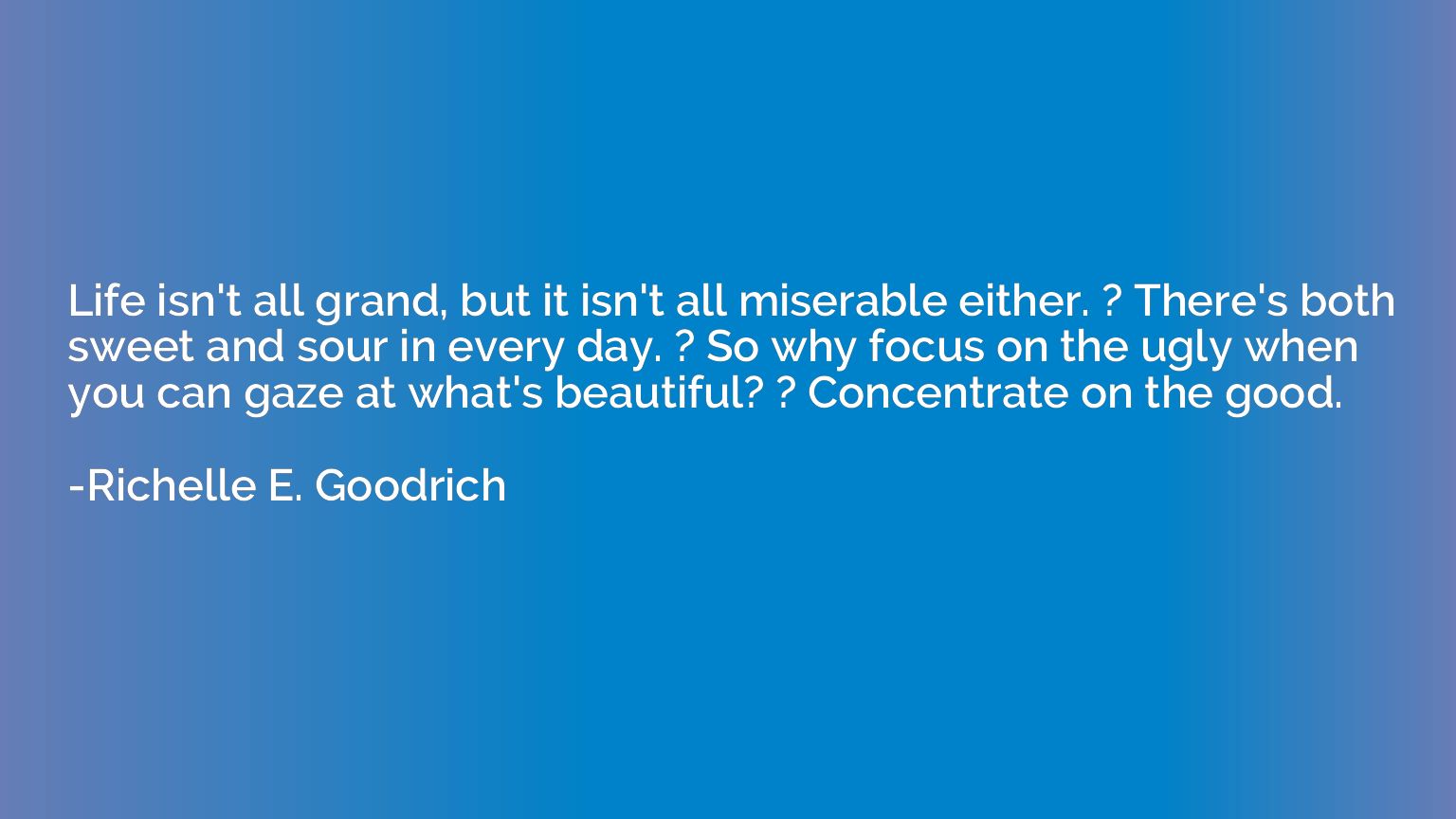Quote by Sir James George Frazer, The Gol
Further, we can now explain the widespread custom of covering up mirrors or turning them to the wall after a death has taken place in the house. It is feared that the soul, projected out of the person in the shape of his reflection in the mirror, may be carried off by the ghost of the departed, which is commonly supposed to linger about the house till the burial. The custom is thus exactly parallel to the Aru custom of not sleeping in a house after a death for fear that the soul, projected out of the body in a dream, may meet the ghost and be carried off by it. The reason why sick people should not see themselves in a mirror, and why the mirror in a sick-room is therefore covered up, is also plain; in time of sickness, when the soul might take flight so easily, it is particularly dangerous to project it out of the body by means of the reflection in a mirror. The rule is therefore precisely parallel to the rule observed by some peoples of not allowing sick people to sleep; for in sleep the soul is projected out of the body, and there is always a risk that it may not return.http://www.bartleby.com/196/pages/page192.html

Summary
This quote explains the ancient custom of covering mirrors or turning them to the wall after a death. It is believed that the reflection in the mirror is a projection of the soul, and after death, there is a fear that the soul may be carried off by the ghost of the departed. This belief parallels the practice of not sleeping in a house after a death, as it is feared that the soul, projected out of the body in dreams, may meet the ghost and be taken away. For sick people, the reflection in the mirror is considered dangerous as it may project the soul out of the body, thus explaining the tradition of covering mirrors in a sick-room.














